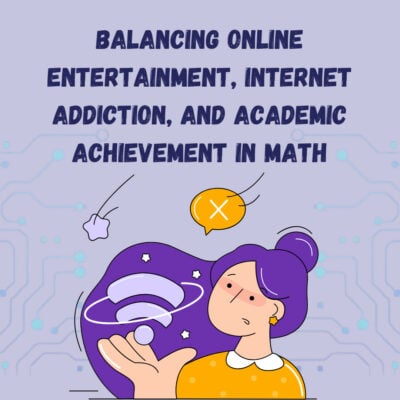In today’s digital age, the internet has seamlessly woven itself into the fabric of our daily lives, becoming an indispensable tool for communication, information, and, notably, entertainment. The allure of online entertainment lies in its accessibility and immediacy. With the internet at our fingertips, we can satisfy our cravings for entertainment anytime, anywhere, with just the tap of a screen or the click of a mouse. This convenience has transformed how we unwind, relax, and escape from the pressures of daily life.
However, this easy access to entertainment comes with its own set of challenges and concerns. One of the most pressing issues is the phenomenon of internet addiction, characterized by compulsive and excessive internet use that interferes with daily functioning and well-being. As individuals spend more time online, they may find themselves increasingly drawn into the digital realm, neglecting real-life responsibilities and pursuits. One area where internet addiction can have a particularly profound impact is on academic performance, especially in subjects like mathematics.
Why?
Math learning requires focus, concentration, and disciplined practice, qualities that can be compromised by excessive internet usage. When students spend more time indulging in online entertainment, they may inadvertently sacrifice valuable study time, leading to gaps in understanding and proficiency in mathematical concepts. The constant barrage of distractions and stimuli inherent in online entertainment can make it difficult for students to maintain sustained attention and concentration on their math studies.
Social media notifications, email alerts, and the allure of new content can disrupt study sessions and can easily divert their attention away from math assignments or homework. The fragmented nature of online browsing and entertainment consumption can disrupt the consolidation of memories, hindering students’ ability to recall and apply mathematical knowledge effectively.
How to Address Internet Addiction?
While the internet offers a wealth of entertainment options, students should adopt strategies to strike a balance between leisure activities and academic pursuits to mitigate the negative effects of internet addiction on math learning. Here are some strategies to help:
- Set Boundaries: Establish designated times for internet use and prioritize academic responsibilities, such as math homework and study sessions. Keep track of your screen time and internet usage using digital wellness apps or built-in screen time monitoring features on your devices. Set daily or weekly limits for internet usage and strive to maintain a healthy balance between online leisure activities and academic pursuits.
- Limit Distractions: Identify potential distractions in your environment, such as social media, video games, or streaming platforms, and take proactive steps to minimize them during your designated study time. This might involve turning off notifications on your phone or finding a quiet study space away from high-traffic areas. You can use website blockers or apps to limit access to distracting websites and social media platforms during study sessions too!
- Practice Self-Control: Develop self-discipline by setting SMART goals for your math studies. Establish a regular study schedule for your math assignments and stick to it. Allocate specific time slots each day for math study, and treat these study sessions as non-negotiable appointments with yourself. Use tools like calendars or planner apps to organize your study schedule and set study reminders.
- Implementing a Reward System: Motivate yourself to stay focused and disciplined by implementing a reward system. Set up rewards for yourself for completing math assignments or reaching study milestones. These rewards could be anything that you find personally motivating, such as taking a break to watch your favorite TV show, treating yourself to a favorite snack, or spending time with friends after completing a study session.
- Utilize Online Learning Platforms: Explore digital study tools and resources specifically designed to enhance math learning and problem-solving skills. Take advantage of educational websites, online courses, question banks and virtual tutoring sessions to supplement classroom learning and reinforce math concepts. Some interactive lesson recordings and practice quizzes can also provide targeted support and feedback to help students master difficult concepts and improve their performance in math!
- Seek Support: Don’t hesitate to reach out for support if you’re struggling to balance online entertainment, internet addiction, and academic achievement in math. Talk to your teachers, parents, or counselors about your challenges and ask for guidance and support. You might also consider joining study groups or seeking out tutoring services to get additional help with your math studies.
Conclusion
By incorporating these additional tips into their approach to using the internet for studying and revising, students can harness the power of technology to enhance their math learning experience while minimizing the negative effects of internet addiction. By striking a balance between online leisure activities and academic responsibilities, students can cultivate a productive and sustainable relationship with the digital world, ultimately supporting their success in math and beyond!





